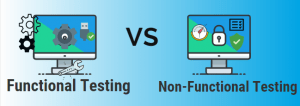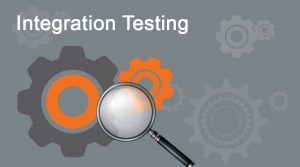A quality assurance (QA) process is a systematic approach to reaching the highest level of software quality. A QA team focuses on improving the software development process to make it efficient and effective and making sure that the final product meets customer needs.
When a company is not satisfied with the current state of development and QA processes, operational issues may distract managers from seeing the bigger picture. Besides offering thorough QA outsourcing services, in order to help businesses to see what is going wrong with quality assurance, find the ways for improvement, and achieve efficiency, UTOR is providing a comprehensive QA process audit.
In this article, we will take a closer look at what the quality audit is, how it is conducted, and how the software development companies can benefit from it.
What Is a Quality Assurance Process Audit?
Auditing is the process of evaluating a company’s software development and quality assurance processes against established standards and best practices in real-time.
The primary goal of conducting a quality assurance process audit is to determine whether the current software testing process is effective and to identify potential bottlenecks in automated and manual testing. Furthermore, it allows distinguishing issues that prevent a company from reaching its particular business goals. As a result of the QA process audit, a client gets a detailed description of problem points and practical ways of improvement.
A timely quality auditing is an important factor of success at each software development stage. Here is how it can help to improve your QA process:
- You can build up a QA process that can prevent problems and defects before they appear;
- The QA process becomes easily scaled and delegated;
- You can grow your product team without compromising on the quality standards;
- The QA planning process can proceed smoothly;
- The Software QA audit process allows increasing your product’s quality, thus a level of customer satisfaction.
Why To Audit Your QA Process?
UTOR’s Case
Our customers felt that their products lacked quality, encountering development issues. As a result, clients were not happy with their product. For instance:
- the development team was overwhelmed by testing;
- old product features were falling apart while implementing the new ones;
- product deployment was slow due to a lack of automated testing;
- the company couldn’t complete new projects with its internal resources.
They considered outsourcing QA and requested UTOR to provide them with a QA Engineer, expecting that a single specialist would be able to provide the desired outcomes.
Initially, UTOR provided the company with a qualified specialist with a relevant QA tester hourly rate but soon realized that even a Senior QA Engineer can’t solve the overall quality issues. When resources are not optimized and the QA process is not set up, the only solution would be conducting a full QA process assessment, according to a process-oriented approach.
Facing this pattern from time to time, we designed the software quality audit service to help our customers to build a strong processes’ fundament according to the QA best practices.
So When Do You Need To Audit Your QA Process?
Your Team Doesn’t Keep Up With Deadlines
It is critical to identify blockers that prevent your software development process from acting on schedule. Missing deadlines can cause the lengthening of your product’s time to the market. However, a solid QA process audit allows discovering hidden issues in your documentation, test cases, automation scripts, and overall testing approach.
Your QA Process Doesn’t Fit Your Agile Development Approach
The agile testing approach requires a QA team to find potential issues at each stage of the development process, rather than at the end of a project. The essence of quality assurance, according to Agile, is a commitment to testing on a regular phase-by-phase basis. Yet, without skilled QA experts to test the product at every step, and a solid process foundation, driving quality in an agile methodology may be tough.
You Are Not Satisfied With Your Software’s Quality
In case the software doesn’t meet customer needs or has critical defects, a negative user experience may influence your reputation. The purpose of the quality assurance audit is to address the user experience issues, as well as find growth points and increase user loyalty.
What Is Included In the UTOR’s QA Audit?
- Identifying whether your planning includes key software testing metrics and doesn’t contain irrelevant performance indicators.
- Extending the code coverage and choosing appropriate testing categories.
- Selecting proper QA management tools.
- Determining the potential gaps in the software testing and processes that can be optimized.
- Finding potential risks that can influence the development process.
How Does UTOR Perform A QA Audit?
- First, we identify the business needs and investigate the current state of the QA process at your company.
- We assign an experienced QA auditor and other specialists (DevOps, Project Manager, etc.) to your project. The UTOR’s Senior QA Analysts and Managers already reviewed and built 50+ QA departments, and are fully aware of the best practices for building QA processes.
- The audit team explores in detail and analyzes your software development, QA testing process, and management systems.
- We create a strategy and QA process model designed for your company’s needs that will increase the quality of your product.
What Happens After The QA Audit Is Done?
After the QA audit process is finished, every client gets a full QA audit report which includes two main deliverables:
- the presentation with professional recommendations on how to improve the weaknesses and enhance the growth areas;
- the detailed action plan, which your company can implement using available internal resources or QA outsourcing services.
Moreover, in case of the following cooperation, we provide a report of the next steps that will be implemented during a month. After that, we arrange a retrospective call to overview the progress of achieving the goals and discuss the first wins.
These ultimate results allow you to see a broader perspective of your QA, development, and management processes. Sometimes, businesses are getting stuck in an operational routine and have a lack of a bird-eye view on potential areas of improvement.
UTOR’s audit will improve your QA process with the best practices and highlight action priorities to boost your product’s quality.
Contact us to get a quote for a QA Audit tailored to your needs!








